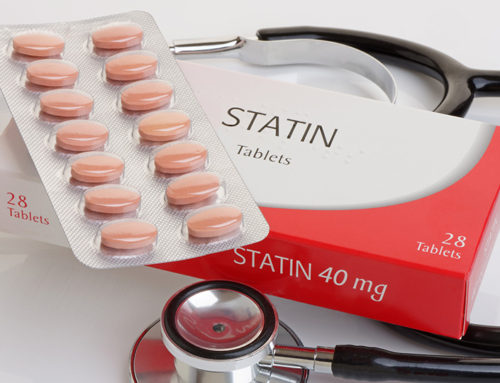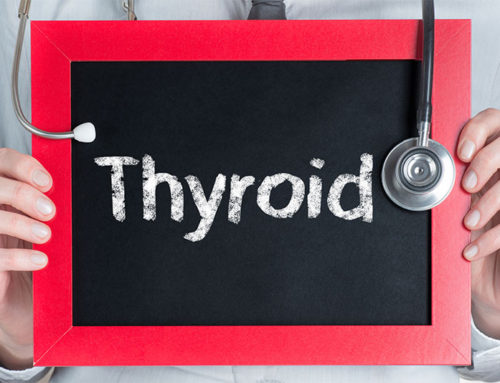I guess it would be irresponsible not to make a comment on the latest news story that’s got everyone buzzing: The Twinkie Diet.
If you’ve had your TV off for a week or so, here’s what happened: An overweight professor of nutrition at Kansas State University went on a junk food diet for two months and lost 27 pounds.
His diet consisted of mostly Twinkies, with a smattering of Little Debbies, Doritos, sugary cereals, Oreo cookies. So as not to set too bad an example in front of his kids, he also ate a small amount of canned vegetables at family dinners and a daily protein shake.
The fact that he lost weight isn’t really the part that’s puzzling. You can lose weight on any low calorie diet, and you can also lose weight mainstreaming methamphetamine.
What’s surprising is that some of the things your doctor measures and that are considered indicators of good health—i.e. cholesterol and triglycerides—also improved. His “bad” cholesterol dropped 20 percent and his “good” cholesterol” went up by the same amount.
(And no, let’s not have the cholesterol discussion right now.)
So basically, what the dude proved is that you can lose weight eating a diet that consists mainly of sugar, partially hydrogenated vegetable oil (trans-fats), more artificial flavoring and coloring than I can list here, and the other 37 ingredients that make up a Twinkie. Plus whatever is in Dorritos and Little Debbies.
The take home point- at least according to this professor—is that the most important thing in weight loss is calories.
Well, maybe. (Though a fair amount of compelling evidence exists to show that calories are not the whole picture, even when it comes to weight. But I digress.)
By the way, this isn’t the first time that someone went on one of these cockamamie experiments. A few years ago a very interesting fellow I know named Chazz Weaver went on an all-McDonald’s all-the-time diet as his way of rebutting the conclusions of the popular film, “Super Size Me”.
And it’s true, after 30 days, Chazz looked great. But Chazz is a committed bodybuilder who put in about 2 hours a day of incredibly hard training. I’m not sure his being able to look great after eating 30 days of crap really proves much, but you be the judge: he made a film about the experiment called “DownSize Me”.)
The point is that you can lose weight (or stay slim) on Twinkies, McDonalds’ or, like many models in the 90’s did, on cocaine, aspirin, coffee and one stalk of asparagus. So what?
When are we going to realize that losing weight isn’t the only way we should measure the success of these idiotic diets?
The puzzling part about the Twinkie Diet experiment is that the good professor saw his cholesterol numbers (and triglyceride numbers) change for the better. Putting aside my view that cholesterol is a much-overrated measurement that tells us very little, the fact is that weight loss- no matter how you do it—always improves those numbers.
But health is not measured simply by cholesterol numbers or even triglyceride numbers and certainly isn’t measured by the number of pounds you lose. (Ask anyone who was in the concentration camps.)
If there’s any take-home point to this silly story at all, it’s probably to emphasize the fact that calories do count (though they are not the whole story, as the “Twinkie Diet” professor and other mainstream nutritionists would have us believe).
That doesn’t mean I want to spend those calories exclusively on Ho Hos.
Long-range health and vitality can’t be measured by what your cholesterol numbers did over the course of 30 days. Or by the fact that you are thin (are you listening, Kate Moss?)
In fact, the whole “Twinkie Diet” episode brings to mind one of my favorite old sayings:
“If you run through a dynamite factory with a lighted match and manage to get out the other side, that doesn’t mean you’re not an idiot.”














[…] This post was mentioned on Twitter by FitFinity, Reclaim Your Mojo. Reclaim Your Mojo said: The Twinkie Diet: Really? http://bit.ly/9pxivT […]
I agree 100%, anybody can loose weight quickly thru different types of diets but it’s what you do in the long run that really counts. Let’s see this man eat twinkies for 1 year and see what happens to his body….
Thanks you for this great response to the twinkie diet. When I read the news blurb about this guy I immediately wondered ” What would Jonny say?” To add to your list of “dynamite” ways people can be skinny, we all know smokers and chronic drinkers (who take in little food) who are skinny. So What?
We already have an alarming rate of obesity in this country, a country where people buy the most (and cheapest) foods from the inner supermarket aisles (twinkies and other hydrogenated wonders) . Keep up the good work of trying to educate the masses Jonny!
Not even worth commenting on.
In the long haul, his health will start failing him like a ton of bricks coming down on him. It will feel like running through a dynamite factory with a lighted match and not making it thru. Not good examples for our kids to see and act upon this crazy diet.
The professor’s diet re-confirms and inescapable conclusion:
To lose weight you have to have a CALORIE DEFICIT! No one can supersede the laws of thermodynamics. It doesn’t matter what you eat as long as you meet this condition. I have never seem chubby concentration/gulag camp survivors. You won’t be healthy, but you’ll be skinny.
I’m not sure I agree with the calorie reduction to losing weight. I have taken many of my personal training clients from a “Twinkie-like’ diet (simple sugars and process foods) and had them eat more foods like chicken breasts, fish, broccoli, spinach, etc. and even when the calories went up, they still lost weight. I need to show results fast to get my clients coming back so I always hit the diet first before the exercise sessions.
You are correct: there is more to it than the energy intake.
What adds weight is the difference between calories consumed and calories expended. The digestion of any food requires the expenditure of a certain amount of energy, and some foods require more energy to digest than others. This energetic digestion tax is specific to the food, involves dynamic biological processes, and is a form of action (no less than climbing a flight of stairs). In the usual straightforward manner of scientific nomenclature it is accordingly styled specific dynamic action. By changing the composition of the diet to increase the fraction of contained energy required for making the balance available to the organism, one reduces said balance: the net available energy is less. Even though a bomb calorimeter assigns the same energy content to a cheaply digested food like a slice of toasted Wonder Bread (!) and a more expensively digested food like a fried egg, the net available energy will be higher for the toast than for the egg.
Moreover, not all the calories in a food are digestible in the first place. There is no direct digestion of insoluble fiber (although in a starvation scenario the energy content of simple organic acids like lactic produced by fermentation in the large bowel can be the difference between life and death), yet its fuel value reports to the calorimetric figure.
Similarly the sequestration and subsequent excretion of bile acids and their associated cholesterol by plant sterols and stanols removes embodied energy from the organism.
Note that none of these effects involve satiety or behavior.
They are strictly mechanistic. As Homer Simpson declared, In this house we obey the laws of thermodynamics!n
The bottom line is that the composition of the diet conditions caloric balance, and this can be an effective avenue of approach to the management of weight. In fact, if you can eat more food without increasing net available energy you can increase your intake of antioxidants (etc.) which has benefits even if you are already at healthy weight.
While I agree completely with Dr. Jonny I would like to make the point that not all self-experimentation is cockamamie. Back in the thirties a noted professor of nutrition limited himself to 35g of protein daily for a year to show that the recommended intakes at the time were not evidence-based (every single revision of government protein advice has been a reduction).
Similarly, the researcher who showed that peptic ulcers are almost always caused by a bacterium proved his point by infecting himself with the organism and then developing ulcers.
Sometimes self-experimentation is the only ethical alternative. Whether it’s cockamamie or not depends on the design of the experiment, just as is the case with any experiment.
Great comments on this topic Jonny!
I think this experiment is an irresponsible one by the professor, because although he lost weight, there is nothing mentioned about the possibility of a long term increased cancer risk from this type of junk food diet, as well as other disease risks. Sadly, this type of story gets a lot of press, because this is what people WANT to hear… yes, you can eat junk food and still lose weight as long as calories are controlled… however, how many “real” people (not involved in a study, which strictly controls calorie intake) would be able to actually keep their caloric intake below their maintenance on a junk food diet? Not many, because cravings will be through the roof due to blood sugar spikes, and willpower only gets you so far! I posted an article on my site the other day with some other thoughts about this topic:
http://www.truthaboutabs.com/the-twinkie-diet.html
Talk to you soon Jonny.
Mike
My favorite line:
“If you run through a dynamite factory with a lighted match and manage to get out the other side, that doesn’t mean you’re not an idiot.”
This needs repeating in the fitness industry!
Mark
Mark
Fat loss is only about calories.
From the health point of view, his numbers improved and he feels energized, so why it couldn’t be healthy?
We can determine health by three things:
1. How do you feel?
2. Do you have good immune system or do you get sick?
3. What are your health marks?
So if all of that gone better, then even health can be improved by eating less food, in other words it’s again only about calories.
Vaclav Gregor
I would think you’d feel terrible eating twinkies, and you’d be getting sick all of the time. Hopefully he didn’t do this during flu season. I think you’d feel like a slob and your body would feel as though it was rotting on the inside.
[…] never say never about any approach to nutrition (unless it’s the Twinkie diet or something similar!). What I mean by this, is I believe it’s a good idea to trial different […]
I’m really surprised he didn’t get sick of all that junk and never just craved a home-cooked meal. I love junk myself but when I have it too many times over the course of a couple of days, I can’t handle it anymore (whether that be fast food or junk food).
However much I think it is unhealthy what he did, I think that people are judging him way too harshly! Setting a bad example for your kids? Your kids will probably never hear about this in their lifetimes. What he did was simply an experiment, and it worked to show something interesting.
Well I will tell you that the most weight I’ve lost has been when I really don’t eat a lot of calories. I have done the atkins many times and yes I lose weight at first but then stall. When I do a low calorie diet I lose a bit slower but steady. I lose about 1.5- 2 lbs a week. I’ve lost 29 lbs this way and have kept it off for over a year. So yes, I do think weight loss has a lot to do with calorie restriction. Now I don’t eat twinkies mind you, but I do have anything else I want and just eat about 1,100. I am 40 and only measure 5 feet, so I really don’t need many calories. I also walk/jog 4 times a week for 35 min. I do like that he did this experiment, to at least show people that protein high diets are great, but calories do also matter a great deal when you want to lose weight.